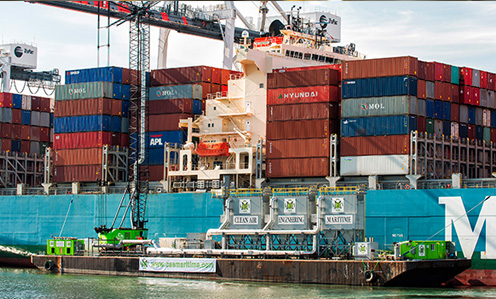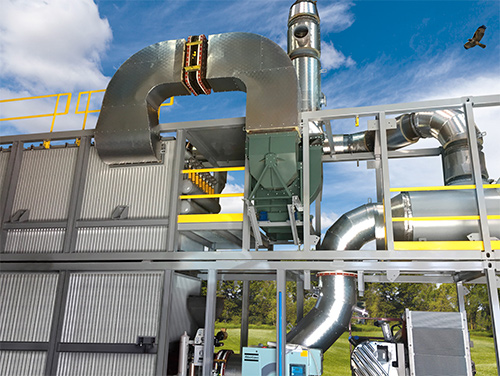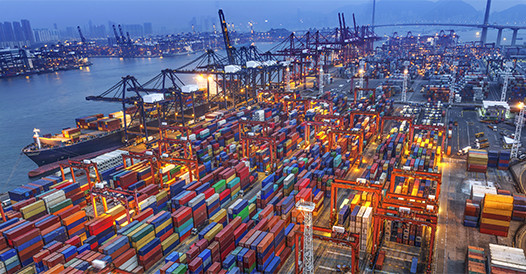

Tri-Mer Corporation is a leader in air pollution control, with more than 6,000 installed APC systems worldwide.
Tri-Mer is also the leader in equipment for removing PM, SO2, and NOx from large-scale stationary diesel operations. Tri-Mer’s UltraCat Catalytic Filter system is the world’s premier dry technology for PM+ SO2+ NOx.
Tri-Mer technology treats diesel emissions from a wide variety of stationary sources. These include generators, small power plants, and “mixed fuel” steam boilers or power generation installations. Please see for more information. A common “stationary” application is for ships at berth. Systems for treating this diesel source include barge-mounted and shore-mounted equipment, as explained below.

Shore Capture System
In 2007, the California Air Resources Board (CARB) approved the “Airborne Toxic Control Measure for Auxiliary Diesel Engines Operated on Ocean-Going Vessels At-Berth in a California Port” Regulation.
This regulation aims to reduce emissions from diesel auxiliary engines on container ships, passenger ships, and refrigerated cargo ships while berthing at California’s ports, including the Ports of Los Angeles, Long Beach, Oakland, San Diego, San Francisco, and Hueneme. The pollutants targeted for reduction include NOx and diesel particulate.
Starting in January of 2014, the at-berth regulation requires vessel operators of fleet ships calling at any of California’s six ports to achieve reductions of at least 50% of at-berth emissions from auxiliary diesel engines used for power generation. The requirements increase to 70% in 2017 and 80% in 2020.
Initially, the only available technology approved to comply with the at-berth regulation was the shore power option, AMP. All California ports have installed significant shore power infrastructure; however, cases exist in which an equivalent emissions reduction option will be required. Those would include ships and or berths that are not AMP capable.
Tri-Mer Corporation, in partnership with Clean Air Engineering Maritime (CAE-M), has developed the Maritime Emissions Treatment System (METS), a CARB-certified alternative for compliance with the at-berth regulation based on its proven catalytic filter technology.
The Tri-Mer/CAE-M emissions treatment unit is also the greenest solution: treatment byproducts are dry, non-RCRA and non-hazardous; there are no liquid wastes.
CAE-M has extensive port operations experience. It is the developer of METS-1, a barge-mounted emissions capture technology that is moved between vessels, and between berths. A device positioned over the vessel’s smokestack treats more than 90% of NOx, SOx and PM emissions.
The combination of Tri-Mer’s expertise in the air pollution control industry and CAE-M’s extensive port experience allowed for the design, construction, and implementation of the first-generation Maritime Exhaust Treatment System (METS), which is the first alternative control technology approved by CARB.
